In addition to tons of great live music, Satchmo SummerFest included a series of eighteen seminars on all aspects of Louis Armstrong's life and career. If you missed them, never fear! You can see all of them here on WWOZ.org.
The six seminars held on Friday, August 1, 2014 are below. Here are the other twelve seminars:
Saturday, August 2, 2014 | Sunday August 3, 2014
Satchmo Seminars from Friday, August 1, 2014
11:30 am – Louis Armstrong: Master of Modernism
Duke University music professor Thomas Brothers talks about his new book, Louis Armstrong: Master of Modernism, in this multi-media presentation highlighting a remarkable decade in Louis Armstrong’s life. In 1922 Armstrong left New Orleans for Chicago to join the King Oliver band. By the early 30s, he was one of the biggest stars in music. Learn about this transformative period during which Armstrong developed innovations as an instrumentalist and vocalist that continue to exert profound influences.
12:30 pm – New Orleans, Chicago and the African American Take on Jazz, 1925-1929
Historian Sarah Waits discusses with Fred Kasten her work documenting the cultural reception of jazz – and jazz’s effects on society and culture in New Orleans and Chicago in the late 1920s, as observed in print by E. Belfield Spriggins of The Louisiana Weekly and Dave Peyton of The Chicago Defender. Waits’ research examines two key questions: How was jazz music and the jazz lifestyle treated by the black community? How did newspapers, as a form of cultural expression and communication connecting African Americans across the nation, play a part in the collective attitude of African Americans regarding The Jazz Age?
1:30 pm – The Storyville Exodus Revisited, or ‘Why Louis Didn’t Leave in 1917 Like the Movie Said He Did?’
Hogan Jazz Archive Curator Bruce Raeburn explores the romantic mythology surrounding Storyville in jazz origins and dissemination narratives – which remains potent, despite decades of scholarly effort to present a more nuanced and complicated vision of how “The District” factored into New Orleans jazz history. In the film New Orleans (1947), the closing of Storyville prompts an exodus that includes Louis Armstrong’s departure for Chicago. Yet Armstrong didn’t actually relocate until 1922. Departure dates of other musicians like Jelly Roll Morton, Sidney Bechet, Joe Oliver, Kid Ory, Freddie Keppard, George Baquet, and many more contradict the time-honored assertion that the closing of Storyville forced New Orleans musicians to seek greener pastures elsewhere. Raeburn presents evidence that the end of Storyville was a “non-event” as far as the movements of most New Orleans jazz musicians were concerned.
2:30 pm – Louis Armstrong – Civil Rights Pioneer
Jazz historian and Louis Armstrong Eternity Band leader David Ostwald looks into Pops’ record on civil rights. There was a time when Louis Armstrong was regarded as an Uncle Tom, and in some far corners, he still is. Yet Armstrong’s stirring example can be held high as an inspiration. His courage and optimism in the face of the loathsome discrimination of his era made him a true civil rights pioneer. In fact, many of Armstrong’s black critics, including Miles Davis, Dizzy Gillespie, Sammy Davis, Jr., and Duke Ellington – ultimately came around to seeing Armstrong as a source of true black pride.
3:30 pm – Africa to Armstrong- African roots of Jazz
Musician, educator, and AfricaNola director Jeff Klein presents a panel discussion and musical demonstration highlighting the cultural and musical connections between Africa and jazz, as embodied in Louis Armstrong. Armstrong spent substantial time on the African continent, visiting cities in more than 25 nations over the course of several years. “I feel at home in Africa,” he said. “I am a descendant of Africans to the bone, and I love the friendly manner in which people cope with things.” The presentation, which features members of AfricaNola and historian and cultural scholar Dr. Ibrahim Seck, will include a discussion of Louis Armstrong in Africa, as well as the roots of jazz in West African music.
4:30 pm – Cinematic Satch: Satchmo the Great
Following Jeff Klein’s discussion on Louis and Africa, Louis Armstrong House Museum Archivist Ricky Riccardi will screen the ultra-rare Edward R. Murrow theatrical documentary, Satchmo the Great. This film follows Armstrong around the world from Europe to Africa and back home to New York and has never been made available on home video or DVD. This might be your only chance to see it in its entirety….don’t miss it!



















